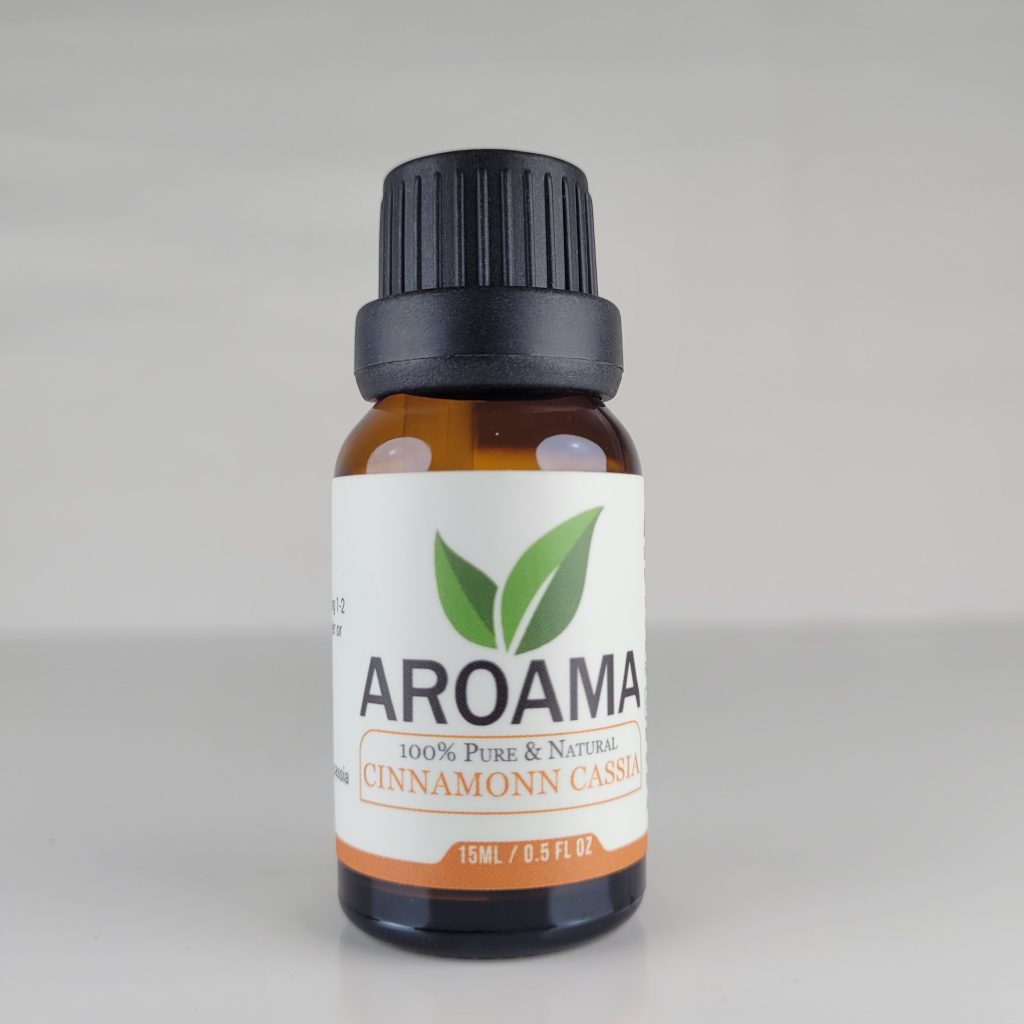Cinnamon Cassia essential oil, derived from the bark of the Cassia tree, is celebrated for its warm, spicy aroma and a host of therapeutic benefits. This versatile oil has been utilized in traditional medicine for centuries, and it has also found its place in modern wellness practices. Furthermore, it is distinct from Ceylon cinnamon, offering unique characteristics in both aroma and chemical composition. The essential oil is extracted through steam distillation, capturing the rich, warm scent that many people associate with the comforting nature of cinnamon.
Therapeutic Properties
Cinnamon Cassia essential oil boasts several therapeutic properties, including:
- Antimicrobial: It is effective against bacteria and fungi, making it a great option for natural cleaning solutions.
- Anti-inflammatory: This oil helps reduce inflammation and soothe discomfort.
- Aromatherapy Benefits: Its warm aroma can uplift mood and promote a sense of relaxation.
Uses of Cinnamon Cassia Essential Oil
1. Aromatherapy
One of the most popular uses of Cinnamon Cassia essential oil is in aromatherapy. When diffused, its spicy scent can create a warm and inviting atmosphere. Moreover, it may enhance concentration and motivation.
How to Use:
To get started, simply add a few drops of Cinnamon to your diffuser. In addition, you can combine it with other complementary oils, such as sweet orange or clove, to create a more complex scent profile.
2. Topical Application Of Cinnamon Cassia
Furthermore, due to its anti-inflammatory and antimicrobial properties, Cinnamon oil can be beneficial for skin issues, such as acne or minor cuts.
Diluting with Carrier Oils
To safely apply Cinnamon Cassia oil to the skin, you must dilute it with a carrier oil. Common carrier oils include:
- Sweet Almond Oil
- Jojoba Oil
- Coconut Oil
How to Mix:
- Choose Your Carrier Oil: First, select a carrier oil based on your skin type and preference. For instance, jojoba oil is excellent for oily skin, while sweet almond oil is suitable for dry skin.
- Mixing Ratio: A general guideline is to use a dilution of 1-2% for topical applications. This means adding 1-2 drops of Cinnamon oil per teaspoon (5 mL) of carrier oil.
- Patch Test: Importantly, always perform a patch test before applying any mixture to a larger area of your skin. Apply a small amount of the mixture to an inconspicuous area and wait for 24 hours to check for any adverse reactions.
3. Natural Cleaning Agent
In addition to its therapeutic uses, Cinnamon oil can be an excellent addition to your natural cleaning products. Thanks to its antimicrobial properties, it can help keep your home clean and fresh.
How to Use:
To create an All-Purpose Cleaner, simply add 10-15 drops of Cinnamon Cassia essential oil to a spray bottle filled with water and a splash of vinegar. Then, shake well before use, and you’ll have a powerful natural cleaner at your disposal.
4. Culinary Uses
Moreover, Cinnamon Cassia essential oil can also be used in cooking, providing a concentrated flavor to various dishes. However, it’s crucial to use it sparingly due to its potency.
How to Use:
To incorporate this oil into your recipes, add one drop of Cinnamon oil to baked goods or beverages, such as chai tea or hot chocolate. Always ensure the oil is food-grade and suitable for consumption.
Safety Precautions
While Cinnamon Cassia essential oil has numerous benefits, it is essential to use it with caution. Here are some safety tips to keep in mind:
- Avoid Direct Sunlight: Cinnamon oil may cause photosensitivity; therefore, avoid applying it before sun exposure.
- Pregnancy and Nursing: If you are pregnant or nursing, consult a healthcare provider before using Cinnamon essential oil.
- Not for Everyone: Those with sensitive skin may experience irritation; therefore, always dilute it properly.


Pingback: Oregano Essential Oil
Pingback: Illuminate Your Space with Electric Wax Burners